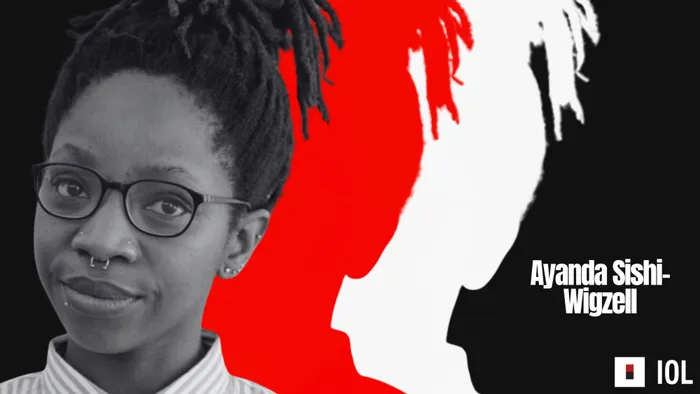Ayanda Sishi-Wigzell: Afrophobia is stupid and has no logic

Ayanda Sishi-Wigzell. Picture: Independent Newspapers
Chidimma Adetshina, a South African model and Miss South Africa hopeful, has found herself in the centre of a social media storm because of her identity. The Miss South Africa organisation has confirmed that she meets the criteria to participate.
She was born in South Africa to parents who have permanent residence in South Africa, yet many question whether her identity is “South African” enough.
There is something particularly sinister about this line of questioning. It seems to target only those from the continent. This is called Afrophobia and it has a sick genesis in the ideas that underpinned apartheid.
When I used my platform recently to speak about how Afrophobia has no logical basis, I was met with virulent vitriol responses that dripped with hatred. The reception that I received in the comments can only be based on the lack of decolonial education in South Africa.
People have forgotten that if it wasn’t for countries like Botswana, Zambia and Lesotho who helped house young exiles, and the guerilla fighters in Zimbabwe, Mozambique and Angola, and the liberation struggles on the continent in general, we might still be living under the yoke of white supremacy.
I wonder what the history of the country would look like if they had shut their doors to South Africans. In the numerous comments, my looks, my skin colour and my hair were all brought into question and viciously attacked when it came to the assumptions being made about my identity and what it meant about my character.
While I was stunned at the responses to me, I can only shudder to think what 23-year-old Chidimma must have gone through. People can truly be cruel. There is a silver lining though: I can take heart that more than 2,000 people agreed with me by liking my post.
To understand the problem, we need to acknowledge the fact that the government of our country, and the global system, has failed us dismally in almost all aspects of life.
Crime and corruption are rife in South Africa. The failures in the state lead to people having to wait for long hours to access help from the state when it comes to administrative issues such as dealing with Home Affairs.
People have to walk long kilometres to access hospitals. The leaders of this country still have to demonstrate that there is a viable plan to provide adequate housing for all and that all people in South Africa have access to healthcare facilities and mental health care.
We still have a global economy that gatekeeps jobs and therefore creates great competition among those of us who are left behind. Leaders use this competition to deflect from their failures and grow their support at the same time.
We need to reject this use of hatred by politicians and work towards a better world together. Every child in South Africa, regardless of their nationality or lack of documentation, has a right to education, although that will soon change with the signing of the Basic Education Laws Amendment Act (Bela).
When it comes to Miss South Africa, let’s face it: this competition does not have dire consequences for the overall future of the country, but the bullying and Afrophobic vitriol that this young woman is facing needs to be addressed.
This is not the first time that South Africa has had violent attacks on people who are not born here. We remember in 2013 when SAPS policemen arrested Mozambique national Mido Macia who was dragged behind a police van and later died of his injuries.
Who could forget when the late Zulu King Goodwill Zwelithini said that all foreigners must go home? These events garnered attention on social media and thus sparked attacks on immigrants who are living peacefully and who entered the country legally.
During all those riots and attacks, there was a certain type of immigrant that South African people seemed to target: the black immigrant.
When it comes to the Miss SA pageant itself, there have been examples of people who have won the pageant but were not born in South Africa.
Vanessa Carreira for example was born in Portugal before immigrating to South Africa and there was no backlash when she won in 2001.
Gangsters are hiding in Bryanston who are from countries such as Israel, yet there are no protests or burning of properties owned by those of Israeli descent.
However, in townships, the businesses of immigrants have been looted due to inflamed sentiments, mainly spread across many social media platforms.
We have a lot more work to do when it comes to social cohesion in South Africa and it starts with teaching the young people in South Africa that everybody, regardless of nationality or identity, deserves respect.
You deserve to strive for your dreams, and most importantly, you deserve to be proud of who you are, no matter which country you come from.
We are all from the continent of Africa after all. Let us learn to love each other instead of judging each other through the colonial lenses of white mediocrity.
*Ayanda Sishi-Wigzell is a social and political commentator, and a radio host.
** The views expressed here are not necessarily those of Independent Media or IOL.
IOL Opinion